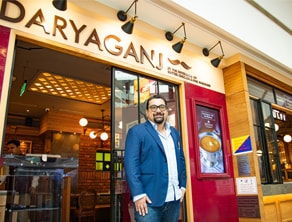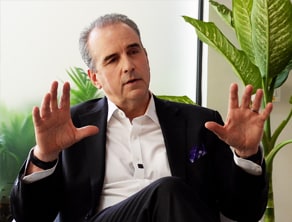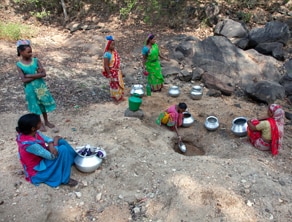From Mazgaon Dock's defence ambition to India's T20 future, here are our top sto
GE HealthCare's plans to expand R&D in India, latest FDI trend, Purulia's water crisis are some of the stories that piqued the interest of our readers this week


1) Smooth sailing
Mazagon Dock Shipbuilders Limited (MDL) is one of the world"s oldest companies. Wadia Group, Cox & Kings, and Forbes & Company are older, but MDL"s history of more than 250 years also holds significance. The past few years have enthralled MDL"s investors since it debuted on the bourses in 2020. In 2023 alone, shares of Mazagon Dock Shipbuilders have rallied as much as 190 percent, while the benchmark Sensex managed to grow only 18 percent. That’s a little over ten times. Starting as a dry dock in 1774, MDL has become an integral part of India"s defence dreams. Here"s the riveting tale of its journey.
2) Bumpy road to redemption
Amit Bagga"s family has a few flourishing businesses, including automobile dealerships and petrol pumps in New Delhi. Like any typical Indian boy from a business family, he joined the shops to learn the ropes, but he also embarked upon the path of self-discovery. He realised he craved individual identity and that his passion lies in the food business. His first venture, Boombox, began in 2010, and after six years, he ran out of beginner"s luck. He did freelancing, consulting, and anything and everything that would make him money while he waited for the next opportunity. In 2018, Raghav Jaggi, Bagga"s school buddy and grandson of Kundan Lal Jaggi, was looking to pay tribute to his grandfather, and Bagga was looking for redemption. They started Daryaganj as a tribute. And now the restaurant is in a bitter legal fight with Moti Mahal. Here"s why the road to Bagga"s redemption is still bumpy.
3) Hint of a slowdown?
According to Reserve Bank of India data, net foreign direct investments (FDI) in India plunged over 38 percent in the first ten months of FY24 to $15.42 billion. In the same period of April 2022-January 2023, FDI was at $24.99 billion. Repatriation and divestment in April 2023-January 2024 increased by 36 percent to $34 billion from $24 billion in the year-ago period. In January 2024, net FDI climbed to $5.74 billion from an outflow of $3.86 billion. Gross inward FDI declined by 3.6 percent to $59.5 billion during April 2023-January 2024, compared to $61.7 billion during the corresponding period a year ago. Is India losing its charm among foreign investors? Here"s a quick analysis.
1) GE"s Make-in-India move
Wipro GE HealthCare, the medical devices and technology joint venture between GE Precision HealthCare and India’s Wipro Enterprises, has announced that it will make “an investment of over Rs8,000 crore [about $1 billion] in manufacturing output and local R&D over the next five years". In the latest episode of Forbes India Tech Conversation, Peter J Arduini, president and CEO of GE HealthCare Technologies, talks about this expansion plan in India and how the country is uniquely positioned to take ownership of more GE HealthCare product development because of its software prowess and growing applied AI capabilities.
2) In pictures: Desperate thirst
Despite its 16 percent global population share, India possesses only 4 percent of the world"s freshwater resources and contributes to 25 percent of global groundwater extraction. The frequent shifts in weather patterns, erratic precipitation, and recurrent droughts have worsened the drinking water situation in recent years. With over 163 million people lacking access to clean water, the world"s highest, India ranks seventh most vulnerable in the Global Climate Risk Index 2021 released by "Germanwatch". In Purulia district in West Bengal, the water crisis is getting severe. Their wells are dry, ponds are desolate, and women endure the brunt by undertaking arduous journeys to fetch water from remote riverbeds twice daily. The situation also compels many to abandon their homes in search of better water availability. Here"s a chronicle of Purulia people fighting a losing battle.
3) Making a case for good jobs
How can a company offer good service? How can it adapt to technological changes, customer needs, and labour market conditions? The answer is by attracting and retaining the right talent. This makes offering "good jobs" a critical aspect of a business"s growth. Zeynep Ton, a professor of the Practice in the Operations Management group at MIT Sloan School of Management and co-founder and president of the nonprofit Good Jobs Institute, believes that the old playbook—pay people as little as possible and operate with high turnover—that worked before may not work in the future. The labour market is tight, and companies are facing tough competition. In such a scenario, Ton explains how companies can win through good jobs and the virtuous cycle that comes with them.
4) India"s T20 future
It"s been only a week since the 2024 edition of the Indian Premier League began, and some early trends have already emerged: pitches are, as usual, batter-friendly in the nine matches that were played by the time this newsletter was being written, home teams have emerged victors in all the matches cricket balls are facing huge violence, and it was very evident in the Sunrisers Hyderabad Vs Mumbai Indians clash on March 27. More than 500 runs were scored, and young players Abhishek Sharma and Tilak Varma had a crucial role in it. The Rajiv Gandhi International Stadium became the stage to audition for Indian team selectors looking to build the squad for the upcoming T20 World Cup, and the two batters took complete advantage. Here"s how they stack up.
First Published: Mar 30, 2024, 10:00
Subscribe Now